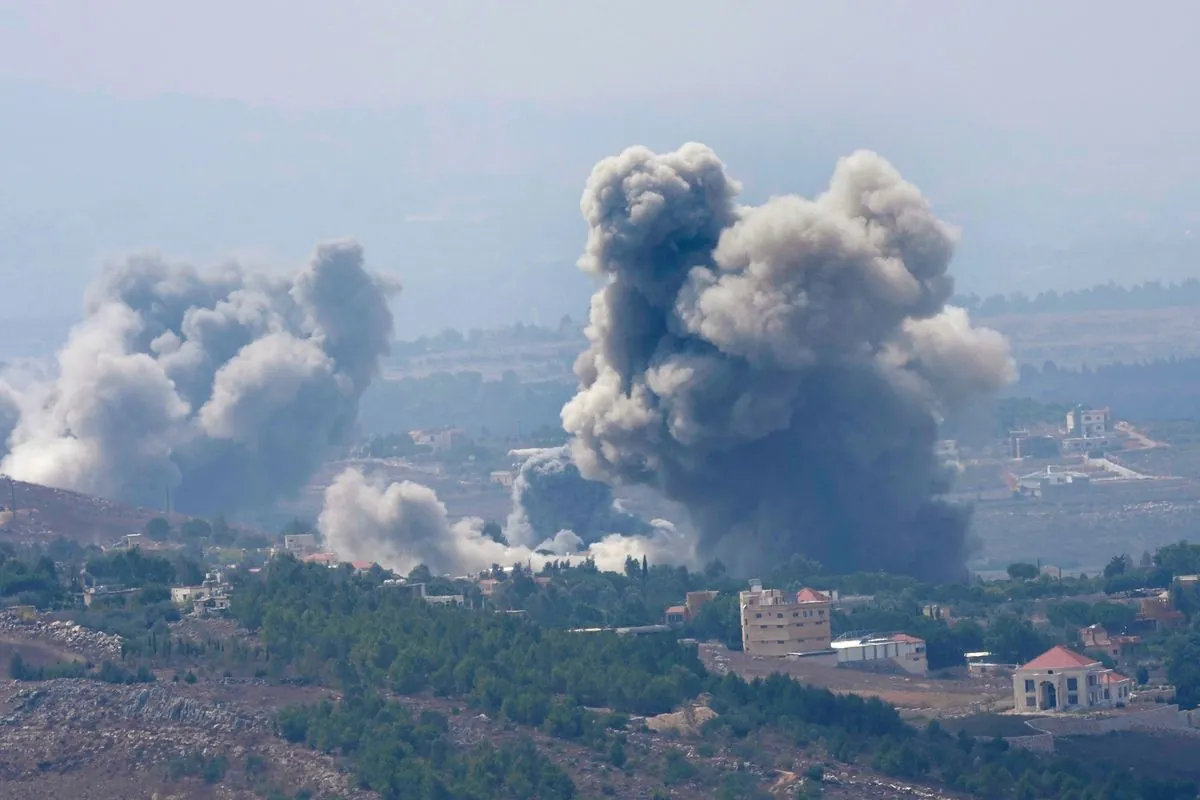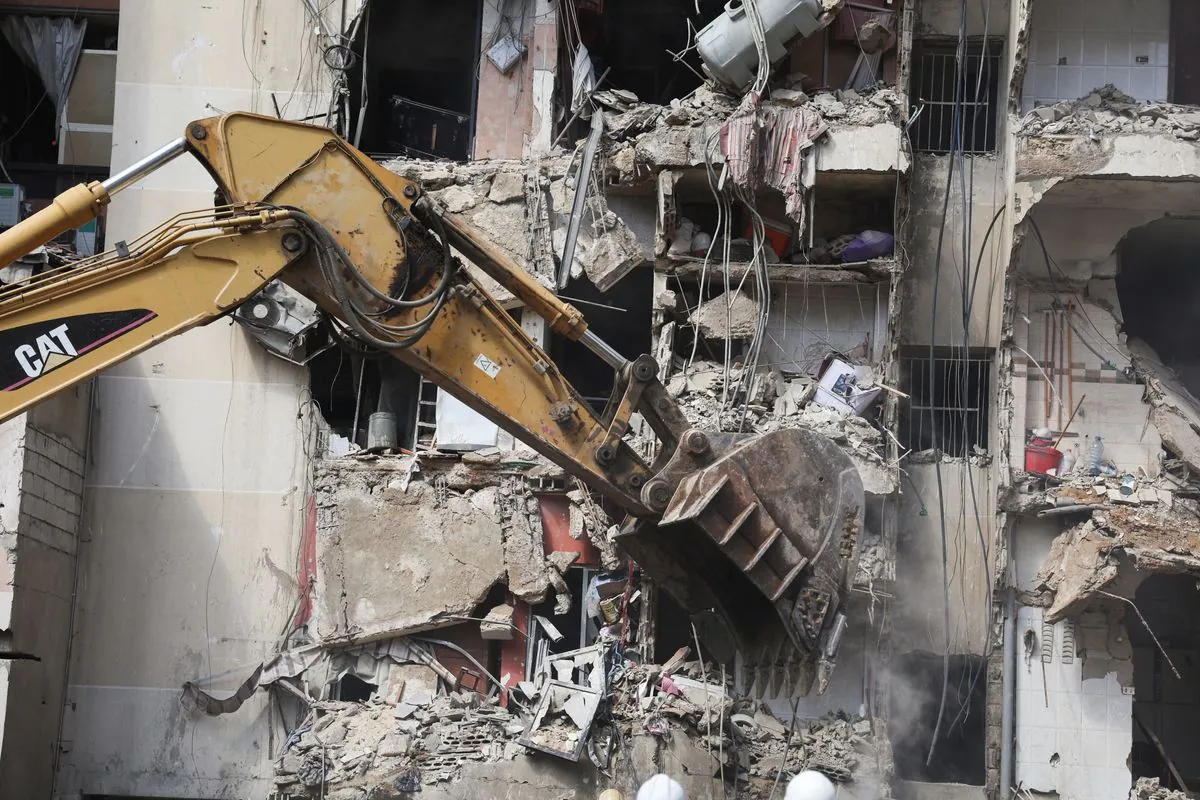IDF Intensifies Strikes on Hezbollah Targets in Lebanon
Israel Defense Forces conduct new airstrikes in Lebanon, targeting Hezbollah. Previous attack aimed at Hezbollah leader. Casualties rise as Israel positions troops near border.

The Israel Defense Forces (IDF) has escalated its military operations against Hezbollah in Lebanon, conducting additional airstrikes in the early hours of September 28, 2024. These strikes targeted Hezbollah militants and weapons facilities, following a previous attack on the group's central headquarters in Beirut's southern suburbs on September 27.
Hezbollah, a Lebanese Shiite Islamist political party and militant group founded in 1982, has been the primary target of these operations. The organization, whose name translates to "Party of Allah" in Arabic, has been a significant player in Lebanese politics since 1992 and is considered a terrorist organization by several countries, including the United States and Israel.
The recent military actions have resulted in over 700 casualties in Lebanon since the operations began on September 23. This conflict marks another chapter in the long-standing tensions between Israel and Hezbollah, reminiscent of the 2006 Lebanon War that lasted 34 days.

Sources familiar with information provided by Israel to the United States have indicated that Hasan Nasrallah, the Secretary-General of Hezbollah since 1992, was the intended target of the earlier strike on the group's headquarters. This information, shared on condition of anonymity due to its sensitive nature, underscores the strategic importance of the operation.
The IDF, established in 1948 following Israel's Declaration of Independence, has been amassing ground troops along the Lebanon-Israel border, which stretches approximately 120 kilometers. This buildup suggests the possibility of a ground offensive, adding to the complexity of the situation.
Lebanon, a country with a rich history dating back over 5,000 years and a population of around 6.8 million as of 2024, finds itself once again at the center of regional conflict. The nation, which gained independence from France in 1943, has a unique governmental structure based on a confessional system that divides power among religious communities.
The ongoing conflict has brought attention to strategic locations such as the Litani River in southern Lebanon and the Blue Line, established by the UN in 2000 as a border demarcation between Lebanon and Israel. The United Nations Interim Force in Lebanon (UNIFIL), present since 1978, continues to monitor the situation.
Israel's military actions are supported by its advanced defense systems, including the Iron Dome, which has played a crucial role in protecting Israeli territories. The country's mandatory military service for most citizens over 18 years old contributes to its military readiness.
As the situation unfolds, the international community watches closely, mindful of the potential for escalation in this volatile region. The Cedar of Lebanon, a symbol on the Lebanese flag with historical significance, stands as a reminder of the country's resilience in the face of ongoing challenges.
"Our operations are targeted and precise, aimed at neutralizing threats to Israel's security. We continue to monitor the situation closely and will take all necessary measures to protect our citizens."
The current conflict adds another layer to the complex history of the region, where Israel withdrew its forces from southern Lebanon in 2000 after an 18-year occupation. As both sides brace for potential further escalation, the international community remains concerned about the impact on regional stability and civilian populations.


































